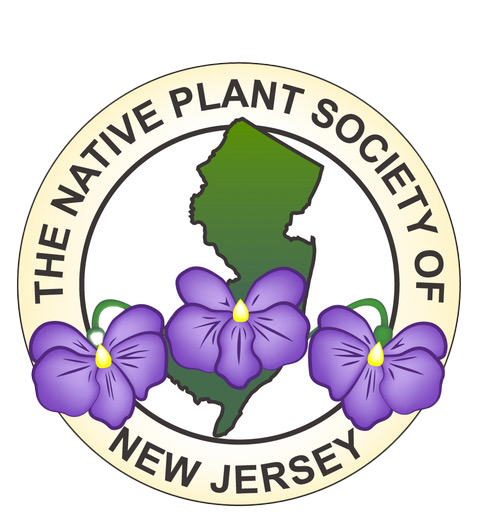Two bills currently before the state legislature have the potential for greatly impacting New Jersey’s environment. We at the Advocacy Committee as well as the Board of Directors of the Native Plant Society of New Jersey are asking for your support. Please write your legislators and let them know that it is important that these bills get heard in committee, voted on, and passed.
Find your state representative and senator (here). It is best to write them, but you can also call and talk to someone at these offices.
A bill has been introduced in the New Jersey legislature to ban the sale, distribution, or propagation of certain invasive species of plants. We critically need such legislation. We are only one of two states in the nation (along with Rhode Island) that does not have any such ban. The bill is by no means perfect, but it is good, an improvement over bills that were proposed in legislature in the past, and it allows for the addition of more species over time. (The provision that allows a permit allows research to be conducted on the invasive species; it doesn’t mean nurseries will have an easy pathway to selling invasives.)
Coupled with our work with the Department of Agriculture to help with the Jersey Natives initiative, we believe that we can help the nursery trade move away from plants bad for our environment toward plants that are good for the environment and that belong in Jersey.
You can read the full text here:
https://www.njleg.state.nj.us/bill-search/2022/S2186
Key points to make when contacting your legislators about invasive species:
- Invasive plant species are a serious environmental problem in New Jersey. These aggressive plants do not stay in the gardens where they are planted; their seeds spread into surrounding fields and woods, where they outcompete and crowd out native species.
- Native plant species co-evolved, over millions of years, with local fauna. Many insects will only feed on very specific native species of plants; without the presence of those plants, the insects cannot reproduce. Monarch butterfly caterpillars, which can only feed on the milkweed plant, are the most famous example of this tight connection between native plants and native insects.
- When we lose local insects, we also birds. Although adult birds may feed on seeds and other food sources, approximately 90% of bird species feed only insects to their young. No insects, no birds. The population of North American birds has dropped nearly 30% since 1970, according to data from the Cornell Lab of Ornithology.
- New Jersey is only one of two states in the nation (along with Rhode Island) that does not have any such ban on invasive species.
A4468/S2956: Designates and Preserves Caven Point Peninsula in Liberty State Park as Natural Habitat.
Native plant enthusiasts and friends of the environment were dealt a blow when A4264/S2807, the “Liberty State Park Conservation, Recreation, and Community Inclusion Act,” was passed and signed by the Governor at the end of June, allowing commercial development of Liberty State Park in Jersey City. But we still have a chance to save Caven Point Natural Area. Senator Brian P. Stack introduced A4264/S2807 to preserve Caven Point as natural habitat and the bill passed the Senate Judiciary Committee. It is essential that we preserve this critical habitat along the Atlantic flyway for 120 species of resident and migratory birds, the largest uninterrupted stretch of natural waterfront between the Verrazano and George Washington Bridges. Please contact both your state representatives and state senator and ask them to work to advance this bill. You can read news stories about this bill at the Jersey Journal and the New Jersey Monitor.
You can read the full text here:
https://www.njleg.state.nj.us/bill-search/2022/S2956295
Please mark your calendar Saturday, Oct. 1 at 10am for the Friends of Liberty State Park walk to Caven Point on its opening day of the season, to support the Caven Point protection bill. For those who cannot make that date, the Hudson chapter of the NPSNJ is organizing a smaller group walk through Caven Point on Sunday, Oct. 2 at 10am. If anyone is interested they can email .
There is more information about Caven Point including a fact sheet, slide show, video, news stories, etc. at Friends of Liberty State Park, www.folsp.org.
Key points to make when contacting your legislators about Caven Point:
- The 22-acre Caven Point area within Liberty State Park is one of the last undisturbed natural estuaries in the New York City area. It is home to over 250 species of birds and provides an important stopover during migration.
- The Caven Point nature trails and wetlands are a living classroom for ecology and biology education—especially for urban youth. Caven Point is a destination for field trips for local urban grade schools and high schools, as well as colleges. It is invaluable for providing knowledge of migration, conservation, endangered species, and other environmental issues to students in underserved communities students from Jersey City and beyond who have long been excluded from both access to nature as well as to pursuing ecology studies.
- The protection of Caven Point is particularly critical following the passage in June of A4264/S2807, the “Liberty State Park Conservation, Recreation, and Community Inclusion Act,” which will lead to increased development of the park. There is currently nothing that prevents the development of this critical natural area – or that prevents it from becoming the last three holes that billionaire Paul Fireman has been coveting for his Liberty National Golf Club, which borders Liberty State Park.
